Vitamin B6 Is Essential for Maize Embryogenesis
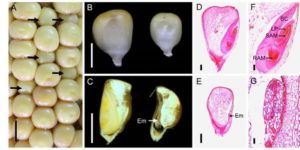 Vitamin B6 is synthesized de novo in plants, fungi, archeae, and most eubacteria, but not in animals, including humans, which have to obtain it from dietary sources. Vitamin B6 is an essential cofactor for a range of biochemical reactions and a potent antioxidant. In plants, it plays important roles in plant growth and development, and stress tolerance. Although vitamin B6 biosynthesis is essential for embryogenesis in Arabidopsis, the roles of vitamin B6 in embryogenesis and endosperm development in grasses has not been addressed. Whereas Arabidopsis seeds develop transient endosperm that is quickly consumed by the developing embryo leaving a single layer of aleurone cells in mature seeds, endosperm is a major component of the mature grass seed. By means of a molecular characterization of the small kernel2 (smk2) mutant in maize (Zea mays), Yang et al. (10.1104/pp.16.01295 ) reveal that vitamin B6 has differential effects on embryogenesis and endosperm development Vitamin B6 levels are decreased dramatically in both the endosperm an embryo of the smk2 mutant, indicating that embryogenesis is more sensitive to reduced vitamin B6 levels than endosperm development. In particular, a vitamer having some vitamin B6 activity, namely pyridoxal 5’-phosphate (PLP), is drastically reduced in both the smk2 embryo and the endosperm. However, whereas embryogenesis of the smk2 mutant is arrested at an early transition stage, endosperm formation is nearly normal. Molecular analyses indicate that Smk2 encodes the glutaminase subunit of the PLP synthase complex involved in vitamin B6 biosynthesis de novo. Smk2 is constitutively expressed in the maize plant, including developing embryos. These results indicate that vitamin B6 is essential to embryogenesis but has a reduced role in endosperm development in maize.
Vitamin B6 is synthesized de novo in plants, fungi, archeae, and most eubacteria, but not in animals, including humans, which have to obtain it from dietary sources. Vitamin B6 is an essential cofactor for a range of biochemical reactions and a potent antioxidant. In plants, it plays important roles in plant growth and development, and stress tolerance. Although vitamin B6 biosynthesis is essential for embryogenesis in Arabidopsis, the roles of vitamin B6 in embryogenesis and endosperm development in grasses has not been addressed. Whereas Arabidopsis seeds develop transient endosperm that is quickly consumed by the developing embryo leaving a single layer of aleurone cells in mature seeds, endosperm is a major component of the mature grass seed. By means of a molecular characterization of the small kernel2 (smk2) mutant in maize (Zea mays), Yang et al. (10.1104/pp.16.01295 ) reveal that vitamin B6 has differential effects on embryogenesis and endosperm development Vitamin B6 levels are decreased dramatically in both the endosperm an embryo of the smk2 mutant, indicating that embryogenesis is more sensitive to reduced vitamin B6 levels than endosperm development. In particular, a vitamer having some vitamin B6 activity, namely pyridoxal 5’-phosphate (PLP), is drastically reduced in both the smk2 embryo and the endosperm. However, whereas embryogenesis of the smk2 mutant is arrested at an early transition stage, endosperm formation is nearly normal. Molecular analyses indicate that Smk2 encodes the glutaminase subunit of the PLP synthase complex involved in vitamin B6 biosynthesis de novo. Smk2 is constitutively expressed in the maize plant, including developing embryos. These results indicate that vitamin B6 is essential to embryogenesis but has a reduced role in endosperm development in maize.


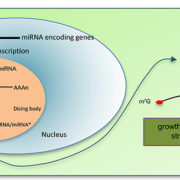
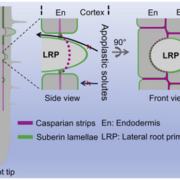
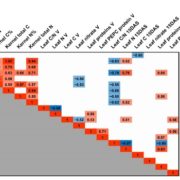

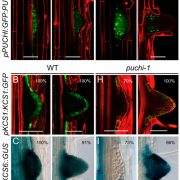
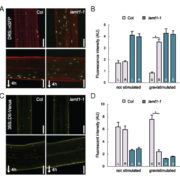
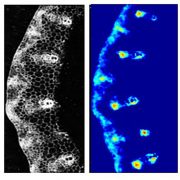
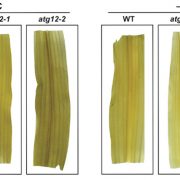


Leave a Reply
Want to join the discussion?Feel free to contribute!